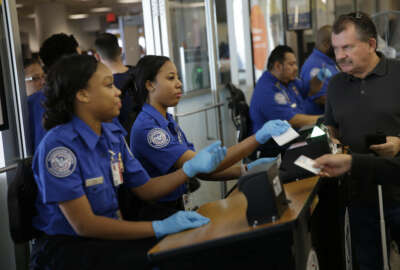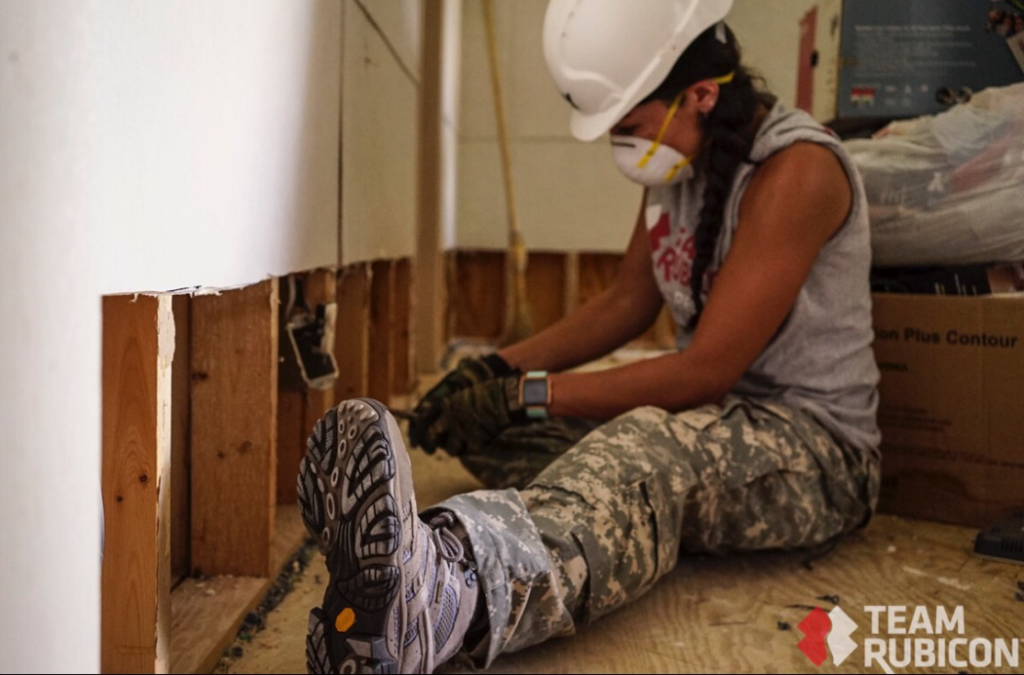
What about the sexual harassment case at TSA?
Why would TSA bring extra problems on itself by suppressing information and appearing to protect people whose practices dishonor the people trying to do a good job?
All of the sexual abuse and harassment news made me think of Alyssa Bermudez, the Army veteran and former Transportation Security Administration employee. As my column about it last year detailed, she’s been fighting TSA over both sexual harassment and whistleblower retaliation for complaining about it.
She has two long-running cases. Her retaliation case is filed with the Office of Special Counsel, the harassment one with the Equal Employment Opportunity Commission.
Bermudez has been represented by D.C. attorney Tamara Miller. Last week, Miller told me:
- An OSC attorney called to say they’ve reached preliminary findings in Bermudez’s favor. And, OSC is reaching out to TSA to see if it will accept her settlement terms. (OSC says the case is still in process).
- An EEOC judge has agreed the case should move ahead, denying TSA’s request for a summary dismissal. A hearing is scheduled for Jan. 9.
Bermudez may still have a long way to go before obtaining justice and being made whole, insofar as that’s possible. But these developments show real progress in her cases.
And what of Bermudez herself? Her case has been documented in several published reports, including mine. I’ve met her and spoken at length with her in-person and on the phone. She strikes you as simultaneously vulnerable and tough as nails.
She’s singly raising a 14-year-old son and living on Veterans Affairs disability benefits. She’s recovered from a bad car accident a year ago. As a sufferer of PTSD from sexual trauma during her Army days in Iraq, she endures cognitive processing therapy weekly at a Maryland VA facility. That’s a fancy word for reliving experiences so they lose their grip on you. It’s not easy. Sexual assault, she says, “alters your mind. It sticks with you.”
But it’s not as if Bermudez sits around feeling sorry for herself. She does things with her son, like paintball (he plays, she watches). At one round, she was the only female parent present. But she said her son’s joy and the presence of all those people gave them both a moment of normalcy. She tries to balance burdening him with her story while raising him to be the kind of man who doesn’t abuse people.
“He understands a lot. I want to him to grow up to be a good young man,” she said.
Bermudez has deployed several times to Texas as a volunteer with Team Rubicon. It puts veterans to work in disaster recovery. When we spoke, she was preparing to go to Puerto Rico. She’s training to be a sawyer, someone who can safely wield a chainsaw.

And what of TSA?
The man at the center of her and other retaliation cases, Joe Salvatore, has been the subject of a long string of complaints, depositions and congressional inquiries. He was recommended for dismissal by TSA’s Office of Professional Responsibility in 2015 for misconduct that included having an improper relationship with another lower-level employee and for exhibiting lack of candor under oath.
He’s still there.
Last year, the then-chairman and ranking member of the House Committee on Oversight and Government Reform — Reps. Jason Chaffetz (R-Utah) and Elijah Cummings (D-Md.) — asked then-Administrator Peter Neffenger why.
TSA has an overhead bin full of problems. One congressman told Administrator David Pekoske, “This agency you run is broken badly, and it needs your attention.”
Aside from screening and technology issues, TSA has a fundamental problem related to the OSC and EEOC complaints against its management. Including a lack of transparency. A March 2017 hearing before the oversight committee went over what the committee calls longstanding gripes with the legal staff there and the TSA’s habit of withholding information from the OSC. The committee noted it had “been investigating abusive management practices, improper use of directed reassignments, whistleblower retaliation, security failures, excessive bonuses, and employee intimidation at TSA.”
Not a good record.
Deputy Administrator Huban Gowadia said no one at OSC told her that redactions of documents submitted to OSC hindered its work on — get this — 46 cases of whistleblower retaliation. Yet Carolyn Lerner, then the head of OSC, complained in the same hearing that some documents it received from TSA were 100-percent redacted.
Gowadia oddly claimed attorney-client privilege in explaining the stonewalling.
Like other agencies, TSA has a difficult mission, one that’s highly visible and open to constant critique. Why would it bring extra problems on itself by suppressing information and appearing to protect people whose practices dishonor the people trying to do a good job?
In last year’s Best Places to Work listings, TSA was number 303 out of 305 components. Its employee satisfaction index stood at 35.5 out of 100, down 5 points from the year before. Dragging its feet on retaliation and harassment cases, and withholding information from other agencies looking into it — none of that can help.
Copyright © 2025 Federal News Network. All rights reserved. This website is not intended for users located within the European Economic Area.
Tom Temin is host of the Federal Drive and has been providing insight on federal technology and management issues for more than 30 years.
Follow @tteminWFED







